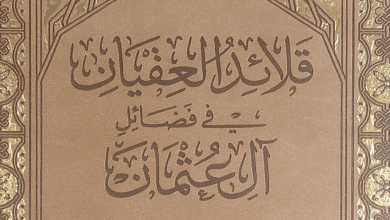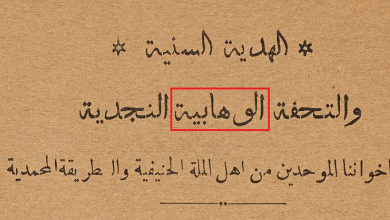The Secret to a Student’s Success
The Secret to a Student’s Success
By Shaykh Muntasir Zaman
It is inborn in our nature that we are always in pursuit of success irrespective of the goal at hand. From the eager medical student awaiting his test results to the restless bachelor searching for his other half, humans are constantly in the pursuit of accomplishing their goals. To be more specific, let us look at the average student in Madrassa who, after spending sleepless nights preparing for exams, awaits his report card in the end of the academic year with the hope of having passed. Although strenuous effort alongside sleepless nights may prove to be a powerful recipe for a student’s success as far as his exams are concerned, a very important, yet often overlooked, component for his overall success in acquiring knowledge is his conduct and mannerism towards the sources of knowledge. History bears testimony to this crucial fact, as the famous jurist al-Burhān al-Zarnūjī [d. 591AH] so truthfully writes,
ما وصل من وصل الا بالحرمة وما سقط من سقط الا بترك الحرمة
The successful only succeeded by virtue of respect whilst the failures only failed due to disrespect[1]
In this regard, the author of the monumental Hanafi Fiqh manual al-Hidāyah, Burhān al-Dīn al-Marghīnānī [d. 593AH] writes, “Whilst teaching in the Masjid, occasionally a prominent scholar from Bukhārā would stand up putting his lesson to a temporary halt. His students, after witnessing this strange action, asked him regarding it, so he replied, “My teac
her’s child plays with his friends by the road, and sometimes he reaches the door of the Masjid. Whenever I see him, I immediately stand up out of respect for my teacher.”[2] The fruits of this unique form of respect is quite evident to anyone familiar with the traditional Dars-e Niżāmī syllabus taught in Madāris wherein al-Hidāya is studied. There is no surprise as to why the scholars of Islām went to great lengths in insuring that they displayed the utmost reverance towards knowledge and anything related to it, for it was the most effective way to acquire knowledge. A poet says,
فاصبر لدائك ان جفوت طبيبه واقنع بجهلك ان جفوت معلما
Continue to suffer from your sickness if you offended the doctor, and remain content with your ignorance if you offended a teacher[3]
Shaykh Muhammad ‘Awwāmh, commenting on the statement of al-Zarnūjī mentioned above, writes, “As for the second part of his statement [“failures only failed due to disrespect”], the clearest proof for that is the wretched consequence of Iblīs’s obstinate refusal to bow down to Adam (peace be upon him) despite the instruction from Allah.
As for the first part of the statement [“The successful only seceded by virtue of respect”], the clearest proof for that is the famous story of ‘Abdallah bin ‘Abbās (may Allah be pleased with him). Once Rasūlullah (may peace and blessings be upon him) went to relieve himself, so ‘Abdallah bin ‘Abbās prepared water for Rasūlullah (may peace and blessings be upon him) to make Whudu. After Rasūllah (may peace and blessings be upon him) relieved himself, he noticed that someone had prepared water for Whudū, so he asked, “Who placed this here?” Maymūnah (may Allah be pleased with her), whose turn it was for Rasūlullah (may peace and blessings be upon him) to spend the night with, replied that it was her nephew, ‘Abdallah bin ‘Abbās. Hearing this, Rasūlullah (may peace and blessings be upon him) embraced Ibn ‘Abbas and made the following Du‘ā’ for him with a variation in its wording, “O Allah, grant him understanding of Dīn.”[4]
Concerning another instance, Ibn ‘Abāss mentions, “I came to Rasūlullah (may peace and blessings be upon him) towards the end of the night and stood behind him as I joined him in prayer, so he took me by my hand and pulled me to his side. When he reengaged himself in prayer, I stepped back returning to my original place behind him. After completing his prayer, he turned towards me and asked, “What happened? I place you to my side but you stepped backwards.” I replied, “Is it appropriate for anyone to pray by your side whilst you are that messenger Allah who is elevated by Allah.” My statement pleased him so much that he made Du‘ā’ to Allah that He increases me in knowledge and understanding.”[5]
It is apparent that Rasūlullah (may peace and blessings be upon him) made Du‘ā’ for Ibn ‘Abbās because of his service in the first instance and because of his respect and honor for prophet hood in the second instance. His position was so lofty that ‘Abdallah bin Mas‘ūd (may Allah be pleased with him) said regarding him, “If he had reached our age, no one would reach even one-tenth of his knowledge.”[6]
So let us, as students of Dīn, take the shorter route to success in our studies by respecting knowledge and everything related to it with no exceptions to desks, classrooms and stationaries. This in no way means that merely respecting knowledge without any effort on our part to study will somehow make us like Ibn ‘Abbās (may Allah be pleased with him), but without doubt, it is one of the most vital components to achieve, rather aspire, towards that goal.
[1] Al-Zarnūjī, Ta‘līm al-Muta‘llim, 26
[2] Ibid, 27
[3] Ibid, 28
[4] Al-Bukhārī, al-Jāmi‘ al-Sahīh, 41:1
[5] Ahmad, Musnad, 330:1
[6] ‘Awwāmah, Ma‘ālim Irshādiyya, 246






